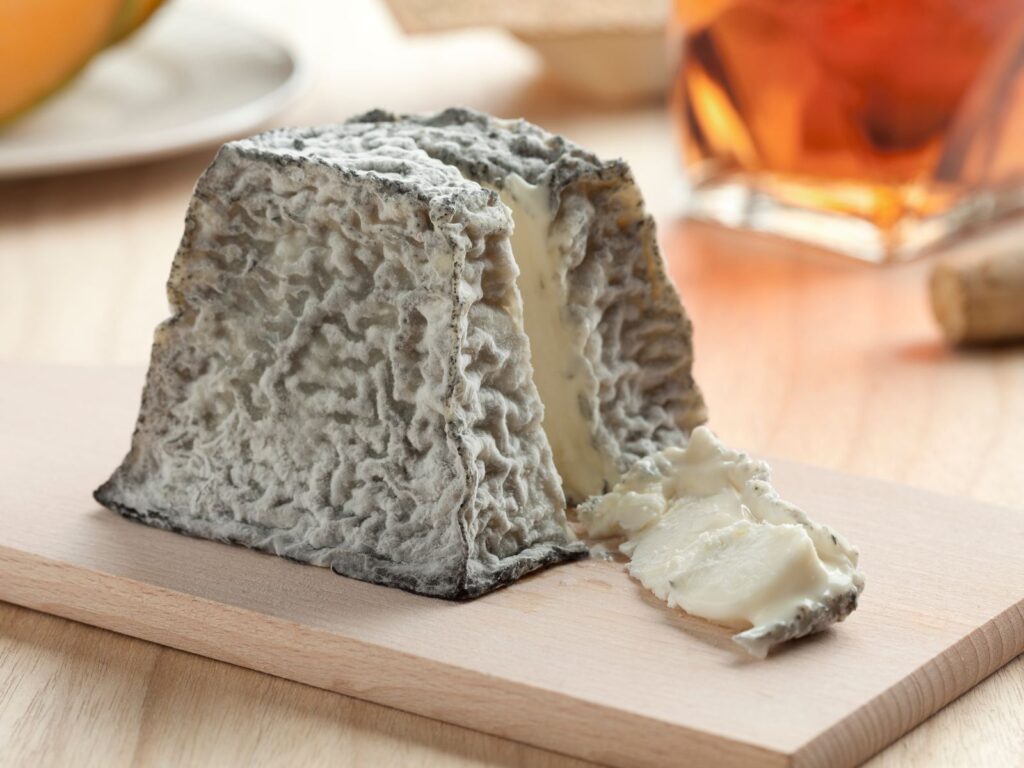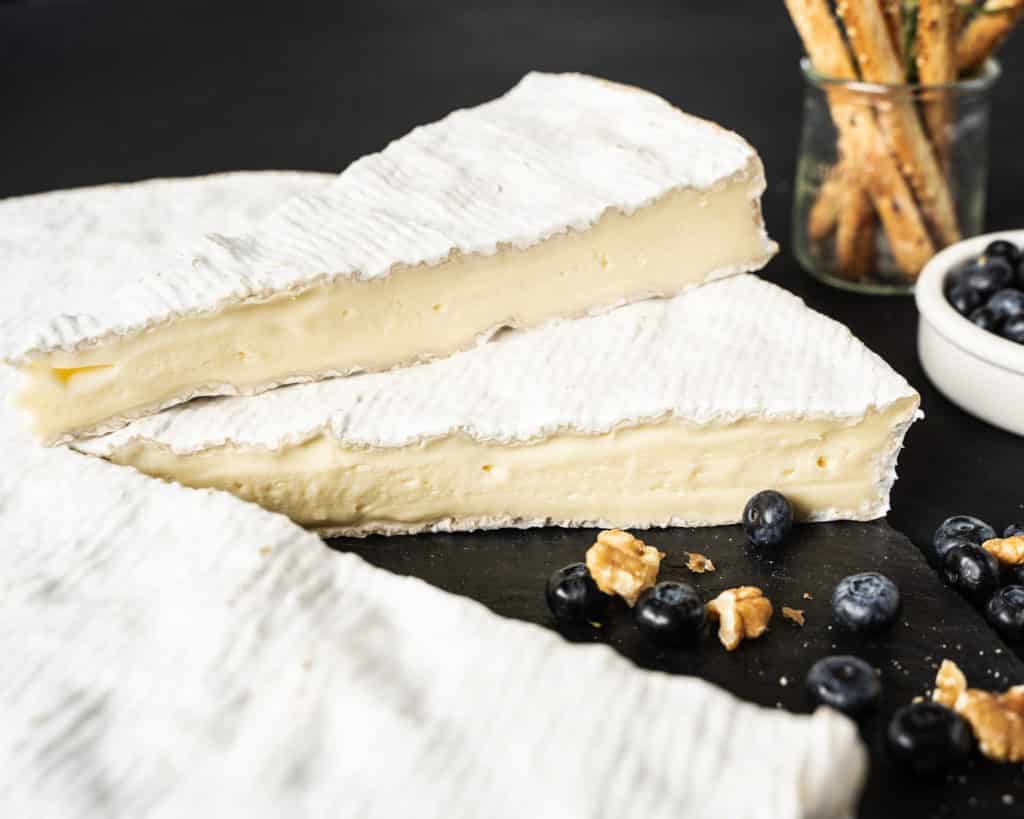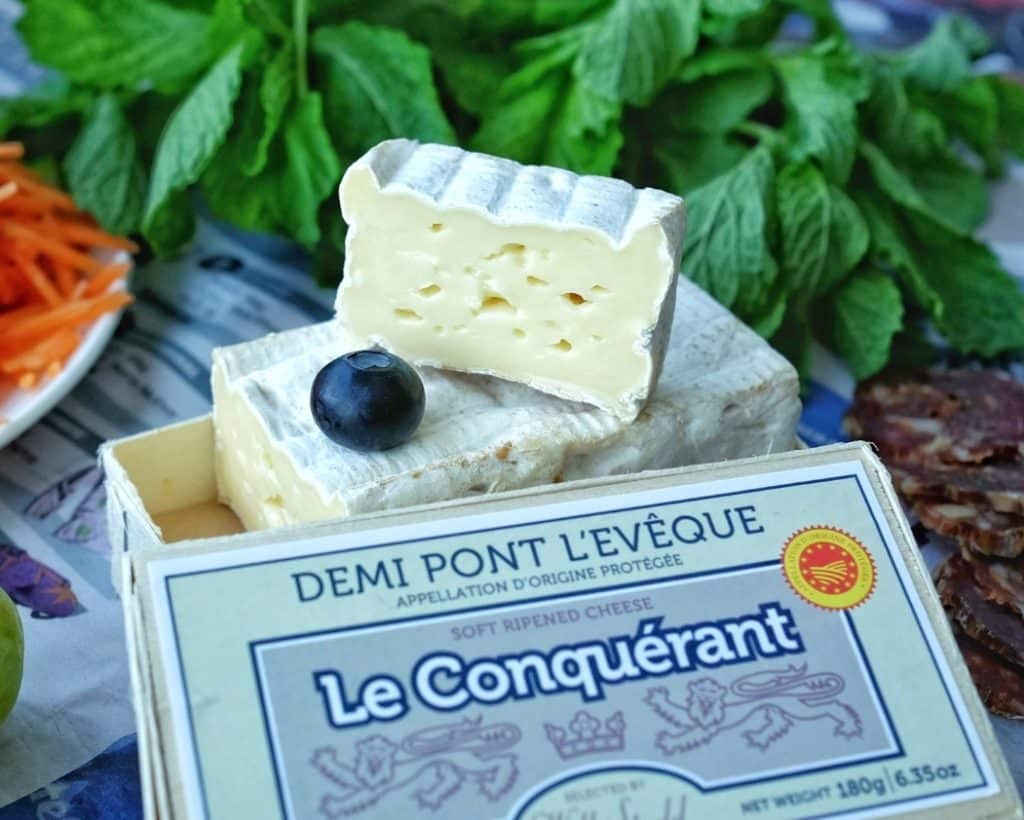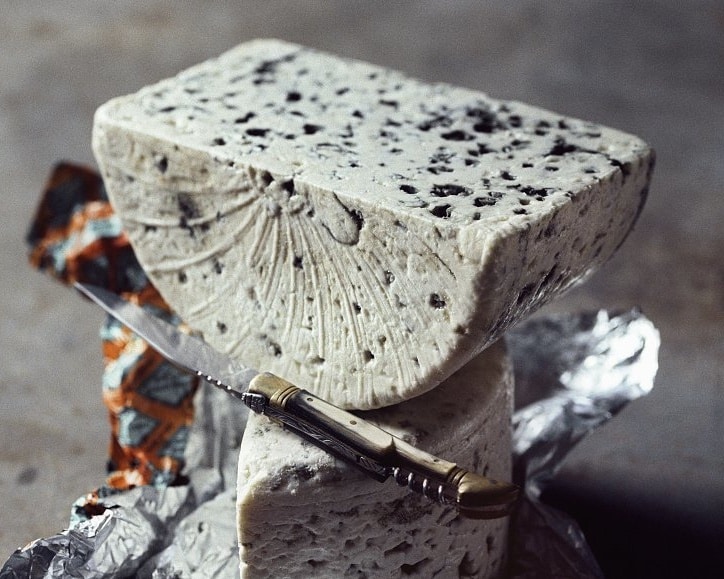Livarot is a soft washed rind cheese that originates from Normandie in the north of France.
The locals affectionately call it “Le Colonel” because of the sedge strips that are traditionally wrapped around it.
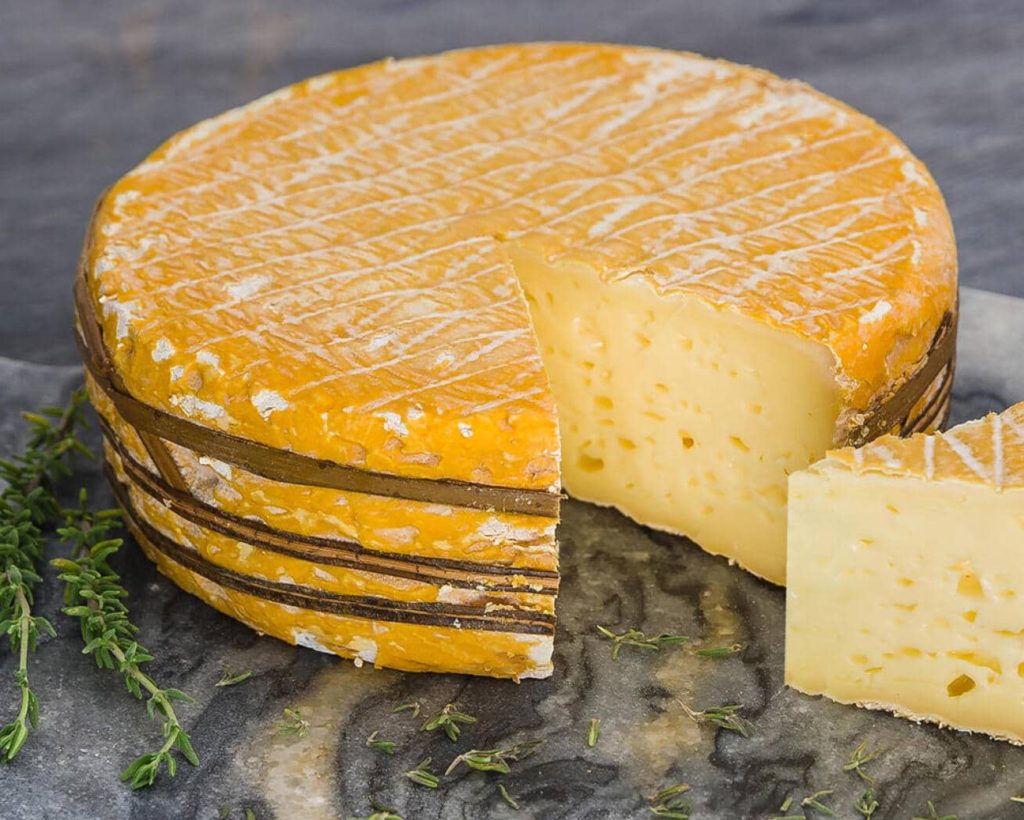
Where does Livarot come from?
The production of Livarot is limited to the region of Normandie in the north of France. Actually, the cheese derives its name from the town of Livarot in the Calvados department.
Moreover, the AOP dictates that cheesemakers can only use the milk of Normande cows. And they can use both thermised and pasteurised milk.
How Livarot is made
The AOP strictly regulates what ingredients can be used to make Livarot. As such, artisans can only add rennet, cultures of bacteria and yeast, mould, salt and Calcium Chloride.
Once the milk has curdled, the cheesemaker cuts the curd into 2cm granules. Afterwards they transfer the curd to the moulds.
After 24 hours, they can either rub the wheels with dry salt or put them in a salt water bath for a further 48 hours.
The iconic sedge strips
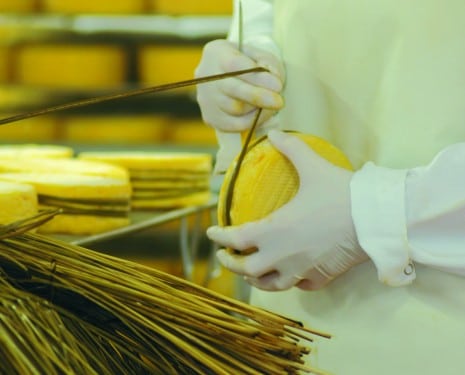
Wheels of Livarot are matured for a minimum of 21 days. At the start of maturation, the cheesemaker wraps each individual wheel in 3-5 strips of sedge (sharp grass that grows near the marshes).
Back in the day, artisans used the strips of sedge to prevent to cheese from collapsing on itself. Presently, the strips are used exclusively for aesthetic reasons.
Regularly washed during maturation
During the 3-5 weeks of maturation, the affineur washes each wheel of cheese in a solution that contains salt water, cultures and annatto.
As a result, the cheese develops an orange rind that is a little bit stick and has a very robust aroma.
What Livarot tastes like
At 21 days, Livarot develops a soft paste under its potent rind. As the cheese ripens, its straw coloured paste softens and tiny eyes form throughout.
Overall, the flavour of the cheese is savoury and fresh, with floral notes of straw, hay, animal and smoke.
How to serve Livarot
Unsurprisingly, the best pairings here will be a robust Amber Ale, sweet Calvados or red wines like Pauillac and Pomerol.
Besides, this traditional washed rind has enough going on to be enjoyed with only a warm crunchy baguette.
